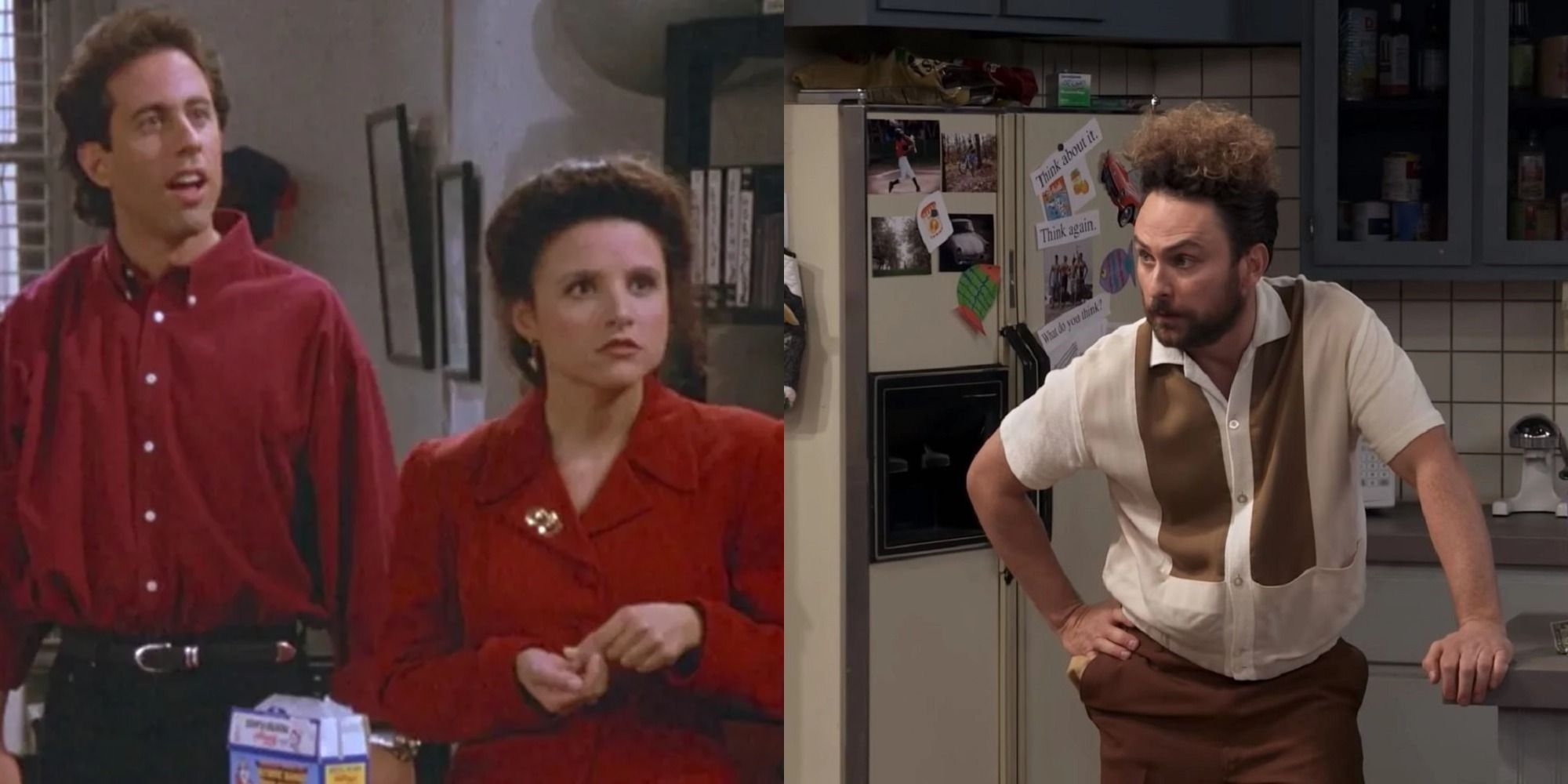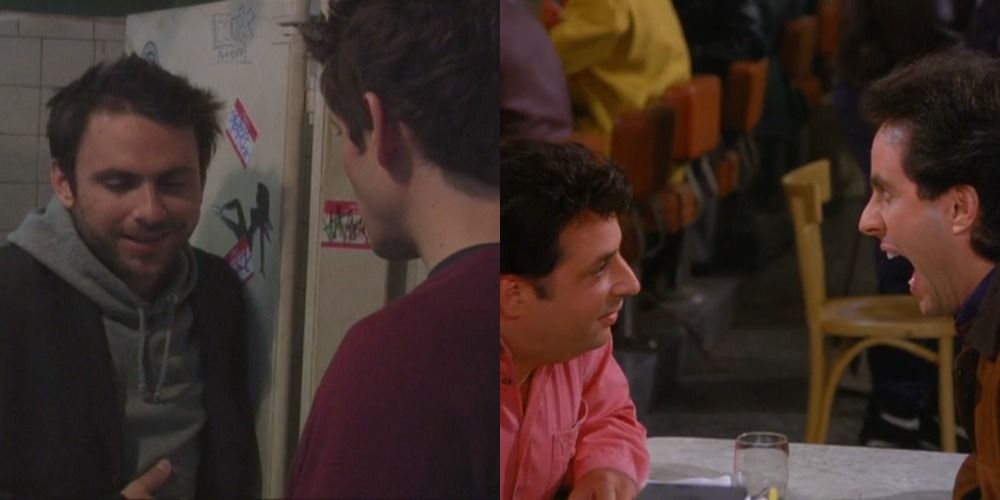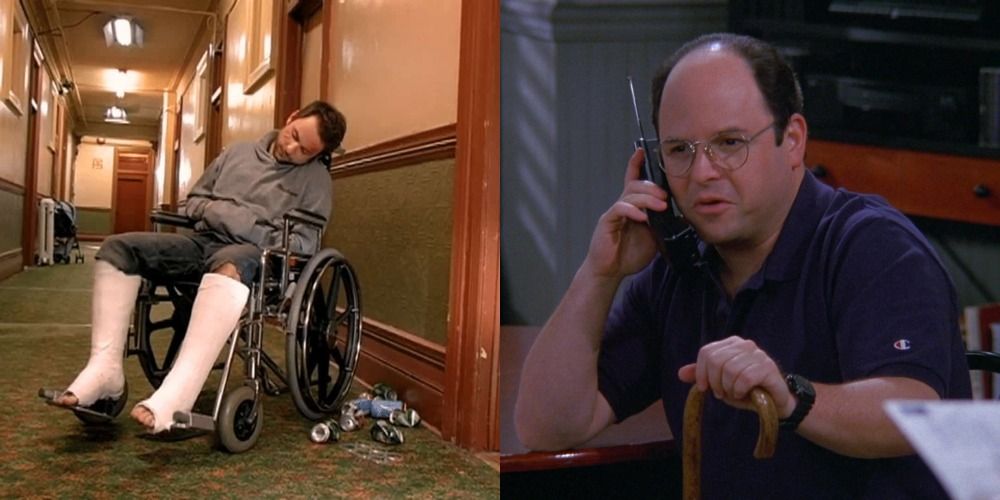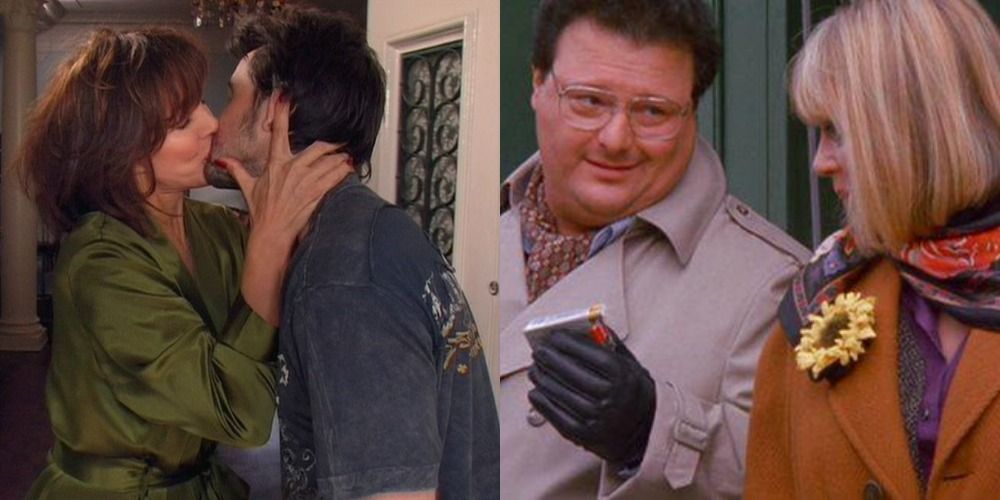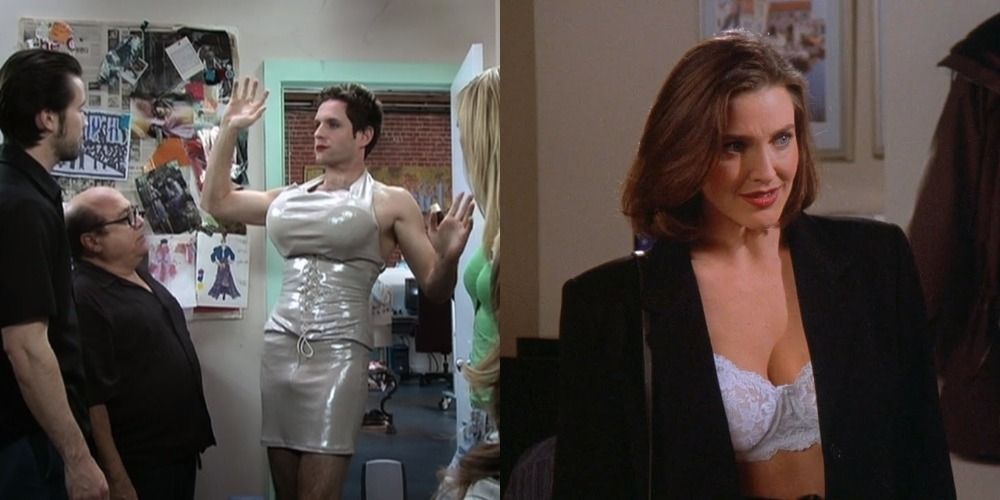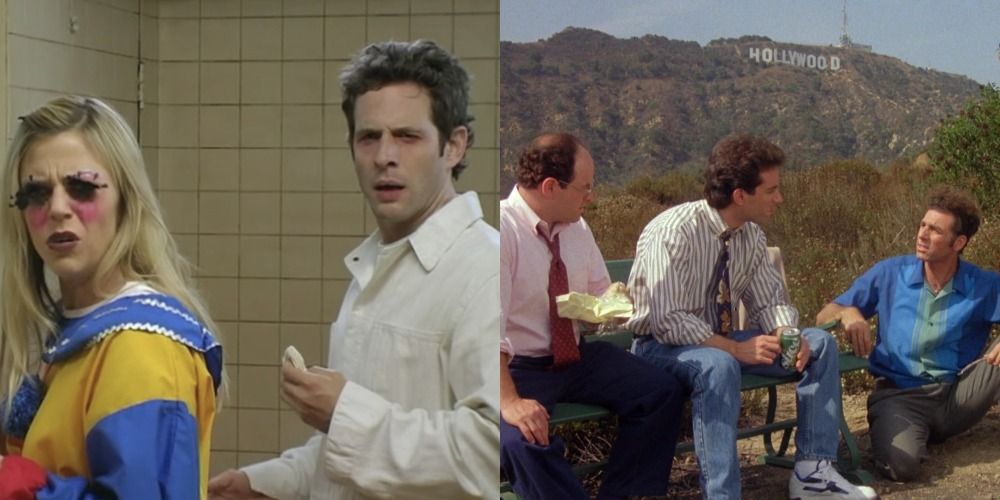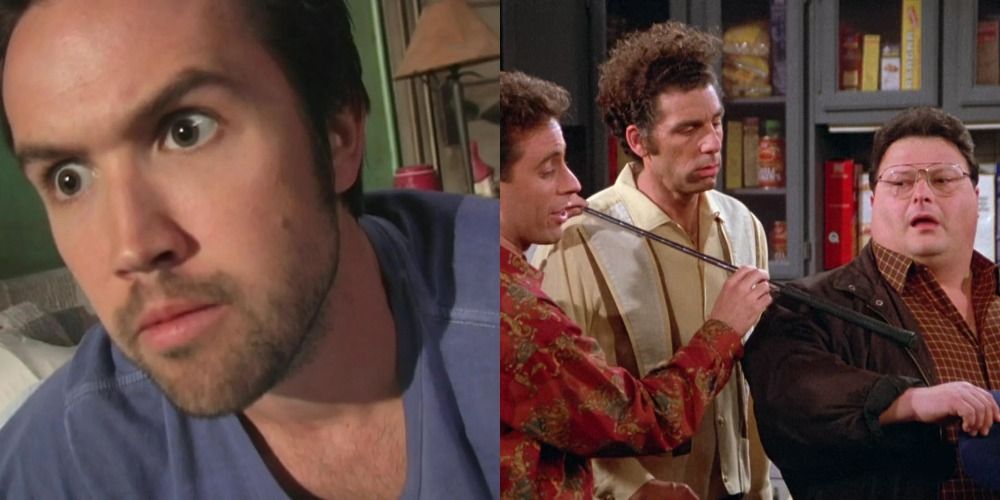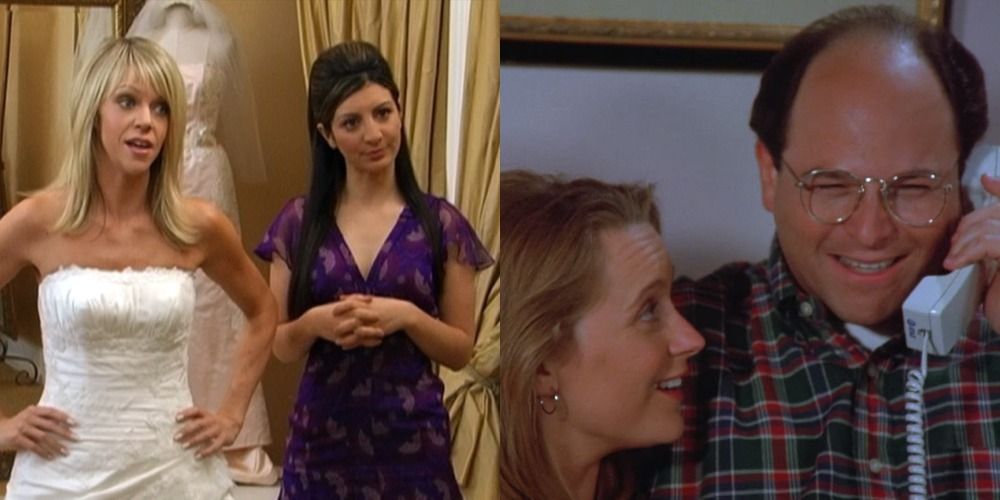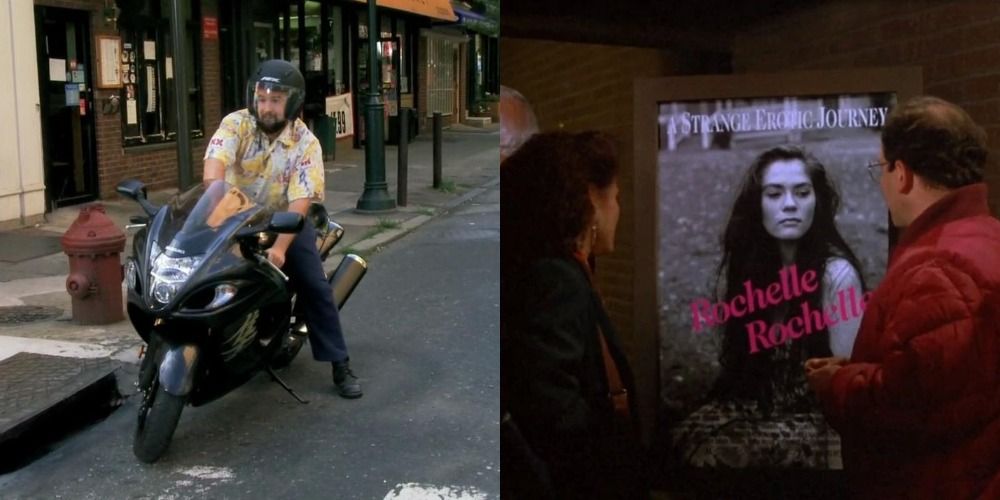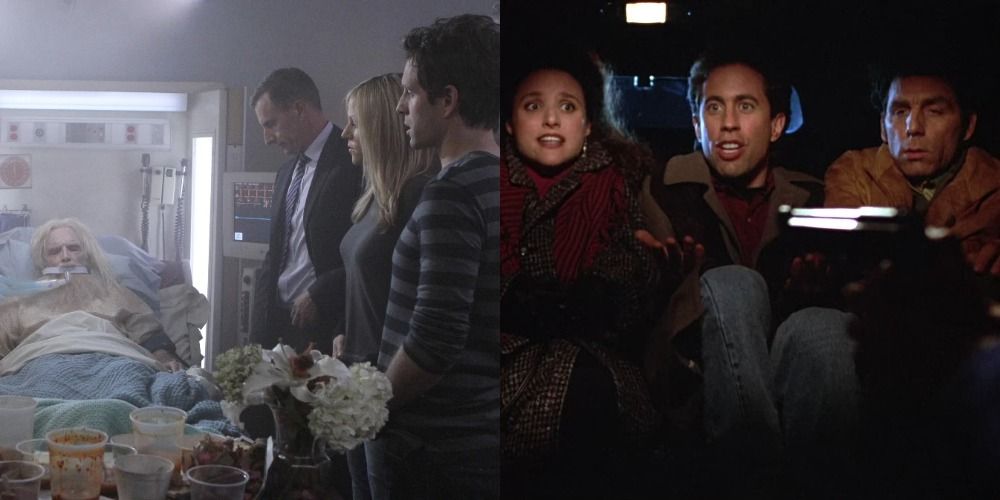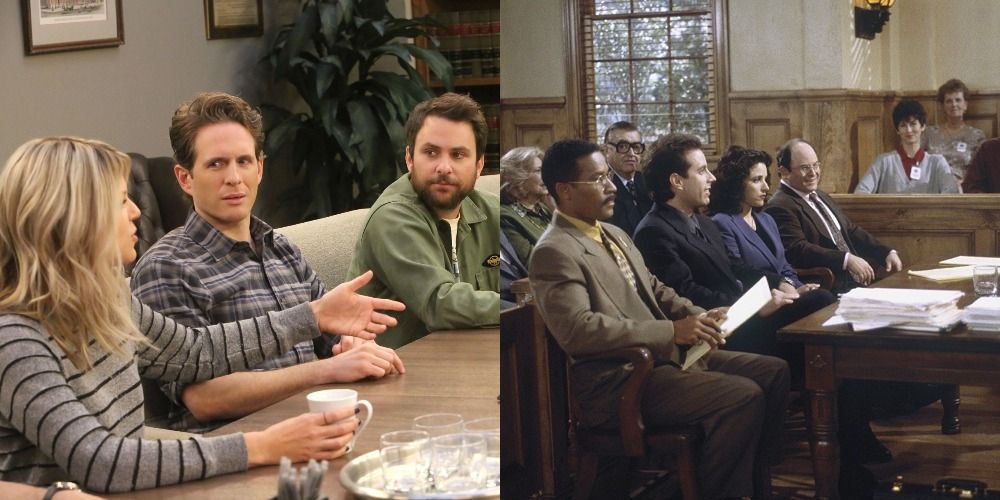Content Warning: The following article contains discussions of sexuality, disabilities, and other sensitive subject matter
In some ways, It's Always Sunny in Philadelphia feels like a natural progression from Seinfeld. It's an R-rated version of that earlier classic, but also much more. Rob McElhenney, Charlie Day, Glenn Howerton, Kaitlin Olsen, and Danny DeVito examine an evolving cultural landscape in a conscientious, yet direct, way.
Both series look at real-world issues via a darkly comic lens. The only real difference is one group of characters lives in New York and the other operates a bar in South Philly. That, and a right spin of the narcissism dial for the owners of Paddy's Pub as well. This leads to some overlap between the topics covered in both long-running series.
Charlie Has Cancer (2005)/The Scofflaw (1995)
Seinfeld had a character lying about a cancer diagnosis a decade prior to It's Always Sunny in Philadelphia. The difference between the former's "The Scofflaw" and the latter's "Charlie Has Cancer" is that the former had a one-time guest character do it.
An episode of the latter series also incorporated cancer into its plot as a scheme, but it had one of the main characters do the lying. "Charlie Has Cancer" is only Sunny's fourth episode, and it's a perfect indicator of the show's dark reaches.
Charlie Gets Crippled (2006)/The Butter Shave (1997)
Charlie may pretend to be a Vietnam veteran in the Season 2 premiere, "Charlie Gets Crippled," but he's really the only one to not fake having a disability. Mac and Dennis, however, take two wheelchairs for a race through a shopping mall. Dee, in that same shopping mall, is using crutches to appear brave and strong to a handsome man in the store.
Whereas most of the core It's Always Sunny in Philadelphia characters are ethically dubious enough to do such a thing, only one from Seinfeld was. George lying about having to use a cane (mostly to get a private bathroom) is something only he would do. With Kramer, Jerry, and Elaine, the audience would never believe it.
Mac Bangs Dennis' Mom (2006)/The Switch (1995)
Seinfeld didn't always make its lead characters the backstabbers. Usually, It's Always Sunny in Philadelphia does. This is exemplified by the fact that, in the earlier series, it's recurring character Newman who sleeps with Kramer's mother.
It's Always Sunny did what it does best and turned up the depravity. Not only does Mac sleep with his best friend's mother, but he also tries to go back repeatedly. However, like Newman, Mac isn't doing this out of malice. In fact, he later refers to his time with Dennis' mom as the best of his life.
The Aluminum Monster Vs. Fatty Magoo (2007)/The Caddy (1996)
Dee and Elaine have several things in common. For one, they are both extremely vindictive. When Dee (in high school: The Aluminum Monster) sees that Ingrid Nelson (Fatty Magoo) is doing well in life, she gets jealous and lies about her own status. From there, she engages on a spiteful quest to design a dress.
Whereas Ingrid appears only twice on Sunny, Elaine Benes's high school nemesis appeared four times. Hers was Sue Ellen Mischke, the "bra-less wonder" and heiress to the Oh Henry! candy bar fortune. The dynamics between the two characters end up being quite different. Ingrid sees Dee for who she is and just moves on. Sue Ellen ends her friendship with Elaine, but up until that point in time, she was seemingly unaware of Elaine's readily apparent disdain.
Mac Is A Serial Killer (2007)/The Trip Parts 1 & 2 (1992)
Seinfeld's Season 4 two-part premiere, "The Trip," had Cosmo Kramer mistaken for a serial killer. 15 years later, It's Always Sunny in Philadelphia did something similar with the character of Ronald McDonald.
While "The Trip" had actual police officers after Kramer, It's Always Sunny made things more personal. Sunny had Mac's own friends (pretty much immediately) believing he was a serial killer. Furthermore, when they ask the man's mother if she thinks her child is capable of murder, she mumbles "Yeah," as if bored. Sunny took the concept to a dark and outright hysterical level.
Who Pooped The Bed? (2008)/The Boyfriend Parts 1 & 2 (1992)
Seinfeld famously parodied Oliver Stone's JFK in season 3's two-parter, "The Boyfriend." Jerry plays the Jim Garrison (Kevin Costner) role and instead of a "magic bullet," it's a "magic loogie." Cheekily enough, the show had Wayne Knight's Newman play the same role in the humorous demonstration that Knight played in JFK.
Recurring guest-character Artemis played the Jim Garrison role on a season 4 Sunny episode. Here, it wasn't to find a "magic loogie," but rather the source of feces in Charlie and Frank's shared bed.
The Waitress Is Getting Married (2009)/The Engagement (1995)
Another character trait shared by Dee Reynolds and Elaine Benes is jealousy. This is only exacerbated when a wedding enters the picture. Dee, however, has a habit of consistently visiting a dress shop to try on wedding garb.
This is a step up from Elaine's point of view on the matter. She only gets upset about her single status when George reveals he'll be getting married. Elaine gets upset primarily because she views George as a loser. It's Always Sunny gave Dee a similar motivation. She has always viewed The Waitress as just the same, a loser.
Thunder Gun Express (2011)/The Movie (1993)
After Seinfeld covered the sometimes chaotic experience of navigating a movie theatre, Sunny attacked the target from a different angle by showing the gang just trying to get to the movie on time.
Seinfeld had the characters scrambling to find seats, only to end up in separate theatres. Sunny turned the tables and had all the characters end up in the same theatre. It just also threw in fecal matter (on Dee), in-theatre sexual activity (Dennis), and a bomb threat (Frank) for good measure.
Pop-Pop: The Final Solution (2012)/The Limo (1992)
Seinfeld and Sunny's bread and butter is straying into territory that other sitcoms (particularly network sitcoms) normally wouldn't. Nazism is that kind of territory, and both series have dabbled in including it as a topic.
Seinfeld had the central group held at gunpoint in the back of a limo by a pair of Nazis (en route to a supremacist rally). In classic Sunny tradition, the later show made things more personal. The show alludes to Pop-Pop's evil allegiance several times until it outright shows the audience footage from a rally. Participating in the rally were younger versions of Dennis and Dee themselves.
Hero Or Hate Crime? (2017)/The Finale Parts 1 & 2 (1998)
"The Finale" is one of Seinfeld's least-liked episodes, generally speaking. Even if the sitcom didn't stick the landing, it did broach the surface of having narcissists come to terms with their actions. In that lies the difference between Seinfeld and Sunny. The gang in Sunny are worse people, but they are self-aware enough to analyze societal constructs and their place within them.
This is most notable in "Hero or Hate Crime?," "Time's Up For The Gang," and, to a lesser extent, "Thundergun 4: Maximum Cool." In Seinfeld's "The Finale," however, the selfish quartet fails to even attempt to recognize their faults. The closest they get to introspection is solely due to a fictional law. It's Always Sunny took a flawed wrap-up and turned it into poignancy.

